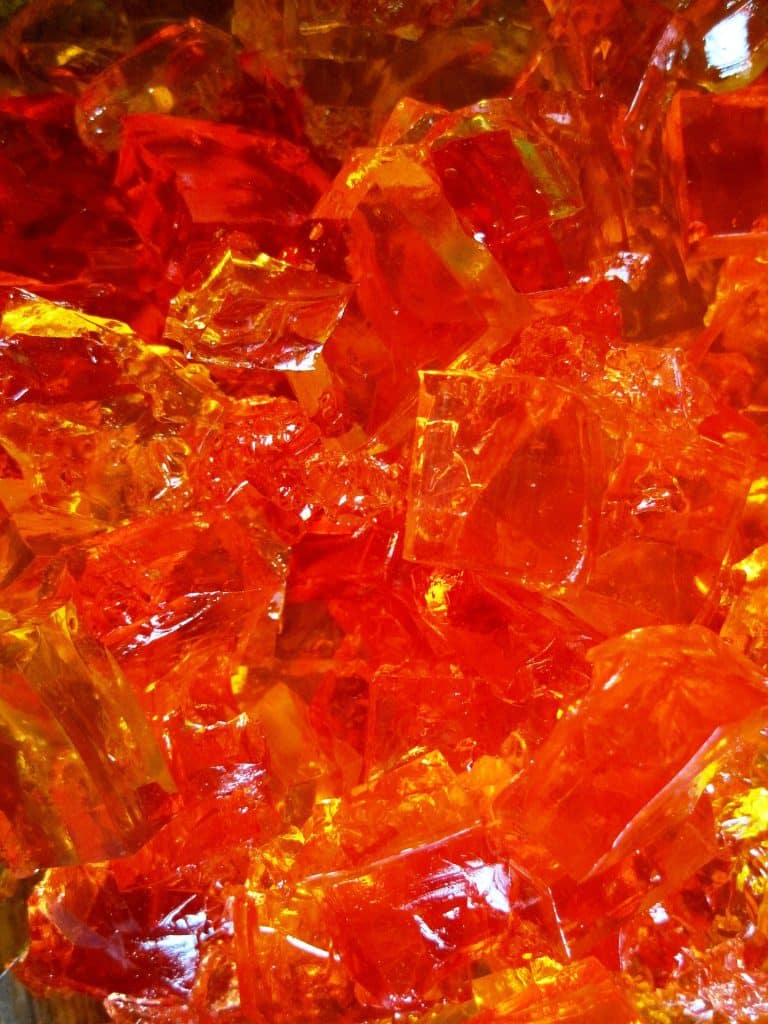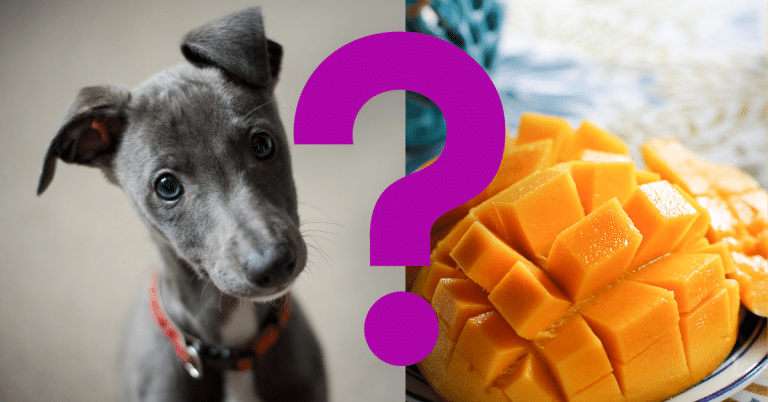Can Dogs Eat Jello? A Vet’s Opinion

Jello is a type of dessert that is made by mixing gelatin, sugar, and water and allowing the mixture to set until it forms a solid, gel-like consistency. Jello is typically sold in small packets or boxes of flavoured powder, which can be mixed with boiling water and then chilled until it sets. The resulting dessert is a brightly coloured, translucent block that can be sliced and served on its own or used as a base for other desserts such as fruit salads, cakes, and trifles, but can you feed Jello to your dog?
No, we would not recommend you feed Jello to your dog on a daily basis, as it is high in sugar and may contain artificial flavours and colours that can be harmful. Additionally, some dogs may have difficulty digesting gelatin, which can cause digestive upset. However, you can occasionally feed your dog Jello, which has plain, unflavoured gelatin that can be a beneficial supplement for dogs with joint issues or skin problems.
Let’s dive in:
Benefits Of Jello For Dogs
Jello itself is not necessarily beneficial for dogs, but plain, unflavored gelatin can benefit their health. Gelatin is derived from collagen, which is a protein found in animal connective tissue. When consumed gelatin, it can help support joint health by providing amino acids that are important for maintaining healthy cartilage and reducing inflammation. Additionally, gelatin can help improve skin and coat health, as it contains glycine and proline, two amino acids important for the formation of collagen and elastin.
Gelatin can be especially beneficial for dogs with joint issues, such as arthritis or hip dysplasia, as it may help to improve their mobility and reduce pain and inflammation. It can also be helpful for dogs with skin conditions, such as allergies or hot spots, as it can help to promote healing and improve the overall health of their skin and coat. However, it is essential to note that not all dogs will tolerate gelatin well, and it is vital to start with small amounts and monitor for any signs of digestive upset or allergic reactions. It is always best to consult your veterinarian before adding new supplements or foods to your dog’s diet.

How To Safely Give Jello To Dogs
The most important thing to consider before giving your dog jello is choosing Jello with plain, unflavored gelatin that contains no added sugars or artificial sweeteners. You should also ensure that the gelatin does not contain any flavourings or additives that could be harmful to your dog’s health.
When feeding your dog gelatin, starting with small amounts and gradually increasing the serving size over time is essential. This will allow your dog’s digestive system to adjust and prevent any potential digestive upset. Depending on your dog’s preferences, you can mix the gelatin with your dog’s regular food or offer it as a standalone treat. After feeding them gelatin, it is also essential to monitor your dog for any signs of digestive upset or allergic reactions. Symptoms to watch for include diarrhoea, vomiting, bloating, and excessive gas. If your dog experiences any of these symptoms, you should stop feeding them gelatin and consult with your veterinarian.
Will Jello Make A Dog Sick?
Jello and other gelatin-based products can be harmful to dogs if they contain certain ingredients that are toxic or difficult for dogs to digest. One of the biggest concerns with Jello is the presence of artificial sweeteners, such as xylitol, which can be highly toxic to dogs. Xylitol is a sugar substitute commonly used in sugar-free or low-calorie products, including some types of Jello. If your dog ingests even a small amount of xylitol, it can cause a rapid release of insulin, leading to hypoglycemia (low blood sugar). Symptoms of xylitol poisoning can include vomiting, loss of coordination, seizures, and in severe cases, liver failure.
In addition to xylitol, flavoured Jello and gelatin products may contain other harmful ingredients, such as chocolate or artificial flavours and colours. Chocolate is toxic to dogs and can cause symptoms such as vomiting, diarrhoea, hyperactivity, and in severe cases, seizures and death. Artificial flavours and colours may contain chemicals that can be harmful to dogs and cause digestive upset or allergic reactions. For these reasons, it is important always to read the ingredients label and avoid giving your dog any jello or gelatin products that contain these potentially harmful ingredients.

Vet’s Summary
Jello, while plain, unflavored gelatin can be a safe and healthy treat for dogs, flavoured jello products may contain harmful ingredients like artificial sweeteners or chocolate. It is best to start with small amounts of plain gelatin, monitor your dog’s response, and always avoid jello products containing potential toxins. In addition, incorporating probiotics into your dog’s diet can promote healthy digestion and support a robust immune system, but it is essential to consult with your veterinarian first to determine the best approach for your individual dog. Overall, with caution and moderation, Jello and other gelatin products can be a sweet and healthy addition to your dog’s diet.
Videos To Watch
If you are wondering what related foods are good to give your dog, watch this:
And if you want to know what a dog can NOT eat, watch this:






